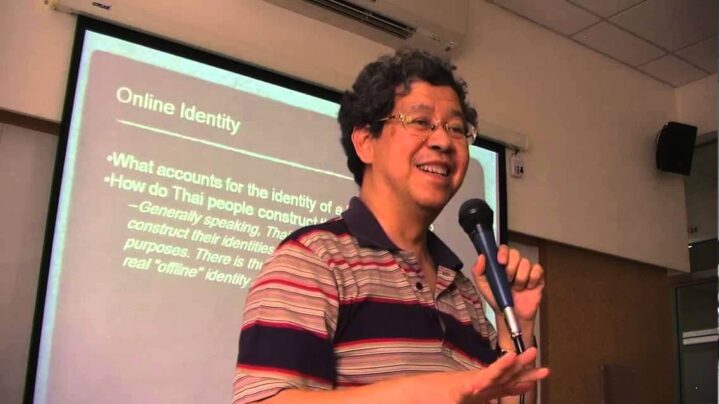
Dr. Soraj Hongladarom Interview
We are speaking to Dr. Soraj Hongladarom, Professor of Philosophy, Department of Philosophy, Chulalongkorn University who is one of the world’s leading experts of social media.
What has changed the most in Thailand?
Thailand has become a more open society. Many youths are coming out because they feel their future is at stake; they have to take matters into their own hands. They have continued protesting for many months. It is very likely that they will continue until concrete changes are made in how Thailand is governed. However, I see that these protests are only parts of a deeper transformation. We can expect Thailand to become more like South Korea or Taiwan, where modern life is closely bound up with traditions, so certain core transformations have to occur. They are happening right now.
What has changed the least?
Everything is changing. Even the religious establishment, one of the most conservative elements, is experiencing profound changes. It’s hard to see what has changed the least. Perhaps those who change the least are those who stand to lose the most: the military and the courts. These are the two instruments of power that the authorities have used to maintain their hegemony. So, there are active forces preventing the military and the courts from changing. However, there is a giant sweeping transformation is coming so these active conservative forces have a tough battle.
As for social media, it’s hard to predict. Technologies are fickle and there are always new players coming. However, some trend stands out. AI (Artificial Intelligence) is booming. It is safe to say that AI will continue to be on people’s minds. AI will become more sophisticated and powerful. This is a scary picture because AI can do things that we cannot predict – that is what makes it an ‘intelligence’ albeit an ‘artificial’ (i.e., manmade) system. We need to find ways to channel their power now. These scary scenarios aside, there are many positive things that AI can do for us. Many fear AI will threaten jobs, but it does not have to be the only story. More jobs will be created, and more importantly, governance structure and legal mechanisms must be in place so global corporations and authoritarian governments may not use AI for their own advantages.
How has social media impacted Thailand over the past several decades?
Quite a lot. Thailand ranks among the highest active users of social media. TV news channels regularly take news content from Facebook and Twitter. So the impact will continue to rise. It has been used to coordinate the protests we see regularly. These protests are distinctive since there are no leaders who represented the whole group previously. There are some students who have gained media attraction because they prominently speak out, but they do not ‘own’ the protesters. They come of their own free will because they are tired of the old way the country is being run. This requires coordination. It would not be possible without social media.
Tell us about your position at Chulalongkorn University.
I am a Professor of Philosophy and Director of the Center for Science, Technology, and Society at Chulalongkorn. The centre just changed its name, and mission. We felt that the mission should be broadened to include more interdisciplinary studies.
What do you do for fun?
I play the piano. I like Western classical music. I grew up with it because of my piano lessons. I have a pet bird, dog and cat. The three do not get along all the time; it’s a challenge getting them to live all together.
Where are your favourite places to go?
I prefer to go to new places, see new things and meet new people. Now during Covid I can only go within Thailand, so I love visiting temples. I consider myself a Buddhist practitioner. I also love visiting local restaurants and museums.
Can you tell us about your family?
I have one son. He is now 23 and just started his job at a software company. He seems to be doing well. He is living now with his mother. She is very busy running a Buddhist foundation. I am now living with my new wife with the three pets that I mentioned earlier.
What does the future hold for you?
I will retire from Chula in two years. Who knows what happens after that? Perhaps I will be an ‘independent scholar.’ Or I might end up having another regular job. Time will tell.



